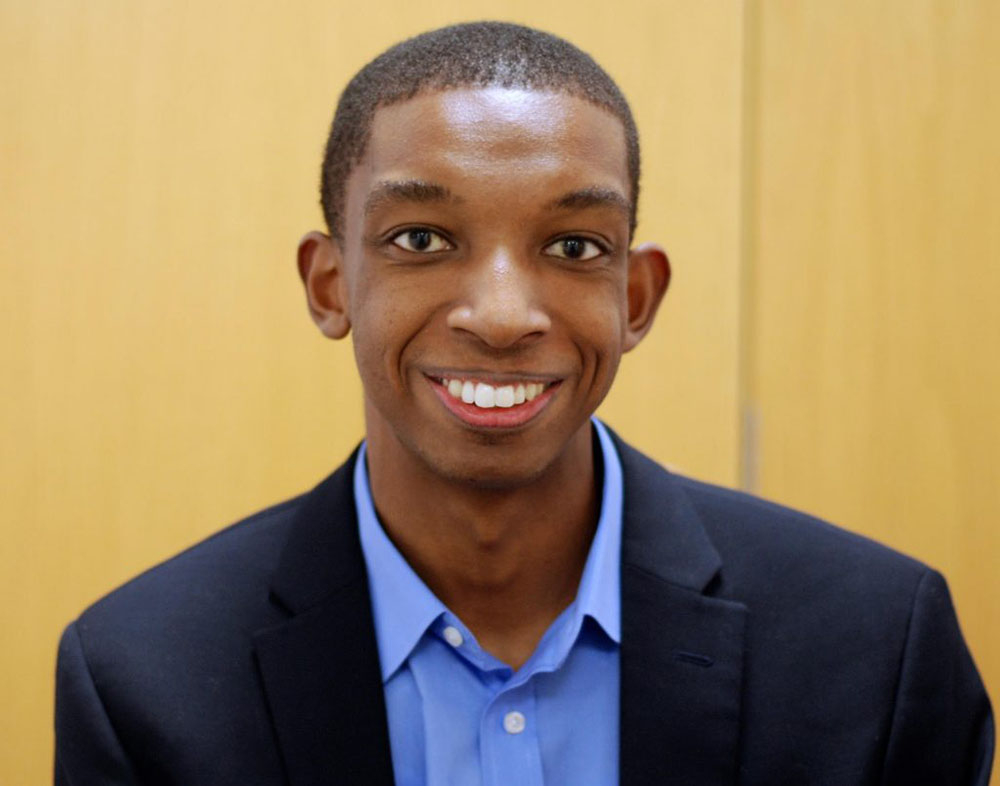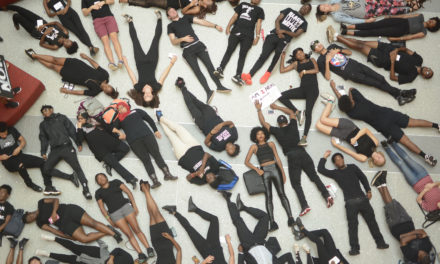Kobi Felton, a fourth-year student studying chemical engineering, is NC State’s 3rd Marshall Scholar. Photo courtesy of the Fellowship Advising Office.
Keilah Davis | Managing Editor
An NC State senior was recently announced as a Marshall Scholarship recipient. Kobi Felton, a senior studying chemical and biomolecular engineering, was recently announced as one of the 43 recipients of 2018. Felton is NC State’s third Marshall Scholar and the first black Marshall Scholar from NC State. NC State’s most recent Marshall Scholarship recipient was in 2008.
“I am honored and extremely grateful,” Felton, 22, said in an email interview. “I stand on the shoulders of many people who have been role models for me. I have been supported by faculty members like Dr. Joel Ducoste, (of the) Department of Civil Engineering, and Dr. Christine Grant, (of the) Department of Chemical and Biomolecular Engineering.”
Marshall Scholarships provide the opportunity for Americans to pursue one to two years of graduate study anywhere in the United Kingdom. Recipients are evaluated and chosen based on academic merit, leadership potential and ambassadorial potential.
These scholarships commemorate the Marshall Plan of 1948, an act in which the U.S. provided economic assistance to the rebuilding of European countries following World War II.
Over 900 students applied for Marshall Scholarships in the 2017-2018 academic year and 43 recipients were selected.
Felton began working with NC State’s Fellowship Advising Office (FAO) on his application and personal statement in February 2017. Students from NC State must be institutionally endorsed by FAO before applying.
Dr. Tiffany Kershner is the director of FAO and Alsace Gallop is the advisor and recruiter for distinguished scholarships and fellowships. Both helped Felton with his application.
“The personal statement is likely the most difficult essay to write because it requires you to explain yourself in 1000 words,” Felton said. “At about draft 20, I met with Ms. Gallop and she suggested I start over. This was hard to hear, but it was what I needed. As soon as I started fresh, the essay got significantly better! I am so thankful to Dr. Kershner and Ms. Gallop for their help.”
Felton, who received a two-year award, will spend the first year at the University of Cambridge in England studying for a Master of Philosophy degree and the following year earning a Master of Research degree in nanomaterials at Imperial College London, according to the FAO announcement. Afterwards, he plans to earn a doctorate and eventually create a “cloud chemistry” laboratory that can facilitate scientific innovation.
“I am interested in learning about flow chemistry,” Felton said, “which is the concept of flowing reactions through narrow tubes. This technology can make chemical processes more environmentally friendly and bring laboratory discoveries to manufacturing quicker.”
According to Felton, many experts in this field are located in the U.K.
“There is actually a flow chemistry conference at the University of Cambridge, where I will be studying during my first year, so I look forward to attending that,” Felton said. “When I return to the U.S., I hope to start a flow chemistry symposium to bring together U.S. and U.K. researchers; this will be my way of sharing what I learned.”
During his time at NC State, Felton has served as chapter president of the National Society of Black Engineers, a Chancellor’s Aide and an Engineering Ambassador. Felton is also a member of two engineering honor societies and a Park Scholar.
“The National Society of Black Engineers and Minority Engineering Programs at NC State have been an essential part of my development,” Felton said. “There are many outstanding students from underrepresented backgrounds at NC State; I hope to inspire and support those who come after me in applying for prestigious scholarships.”
FAO facilitates over 80 externally funded awards and endorses students and alumni for Marshall Scholarships and 11 other prestigious awards. For more information, visit go.ncsu.edu/FAO.
Editor’s Note: A previous version incorrectly stated that 40 applicants were selected as 2018 Marshall Scholars.



